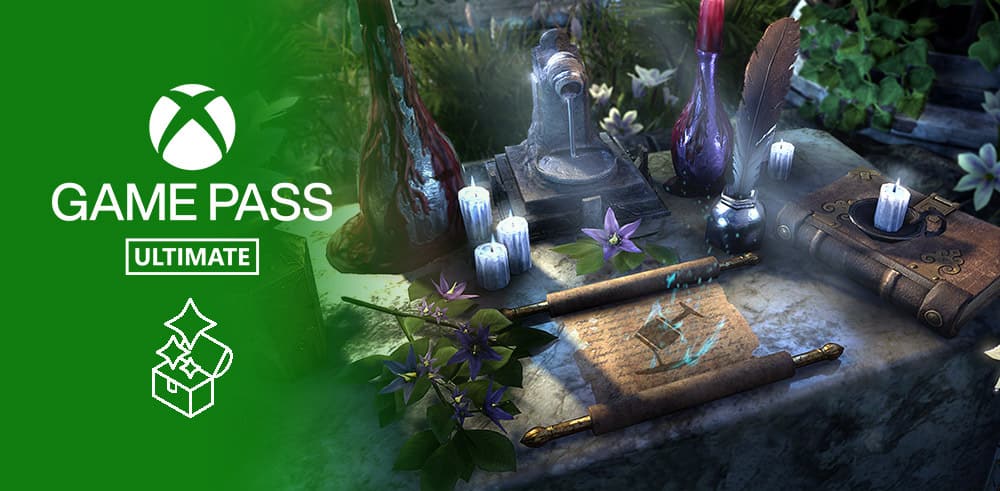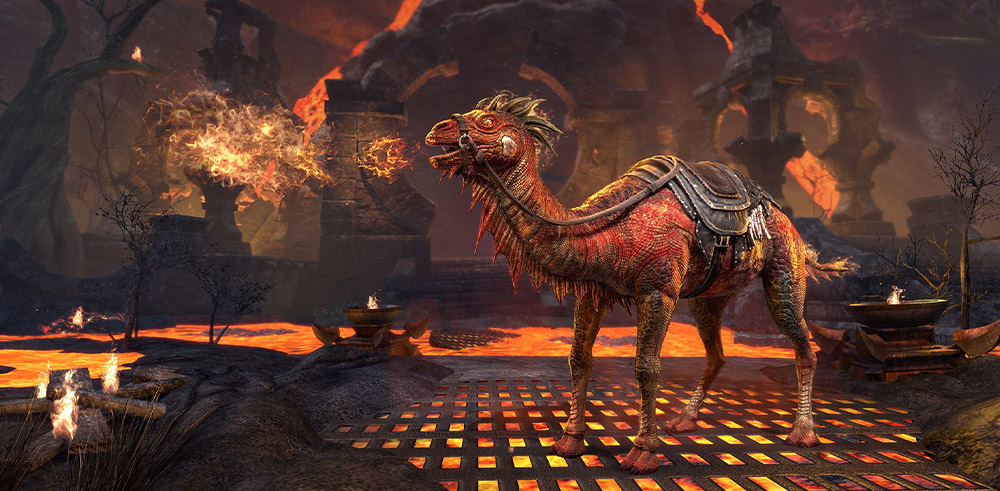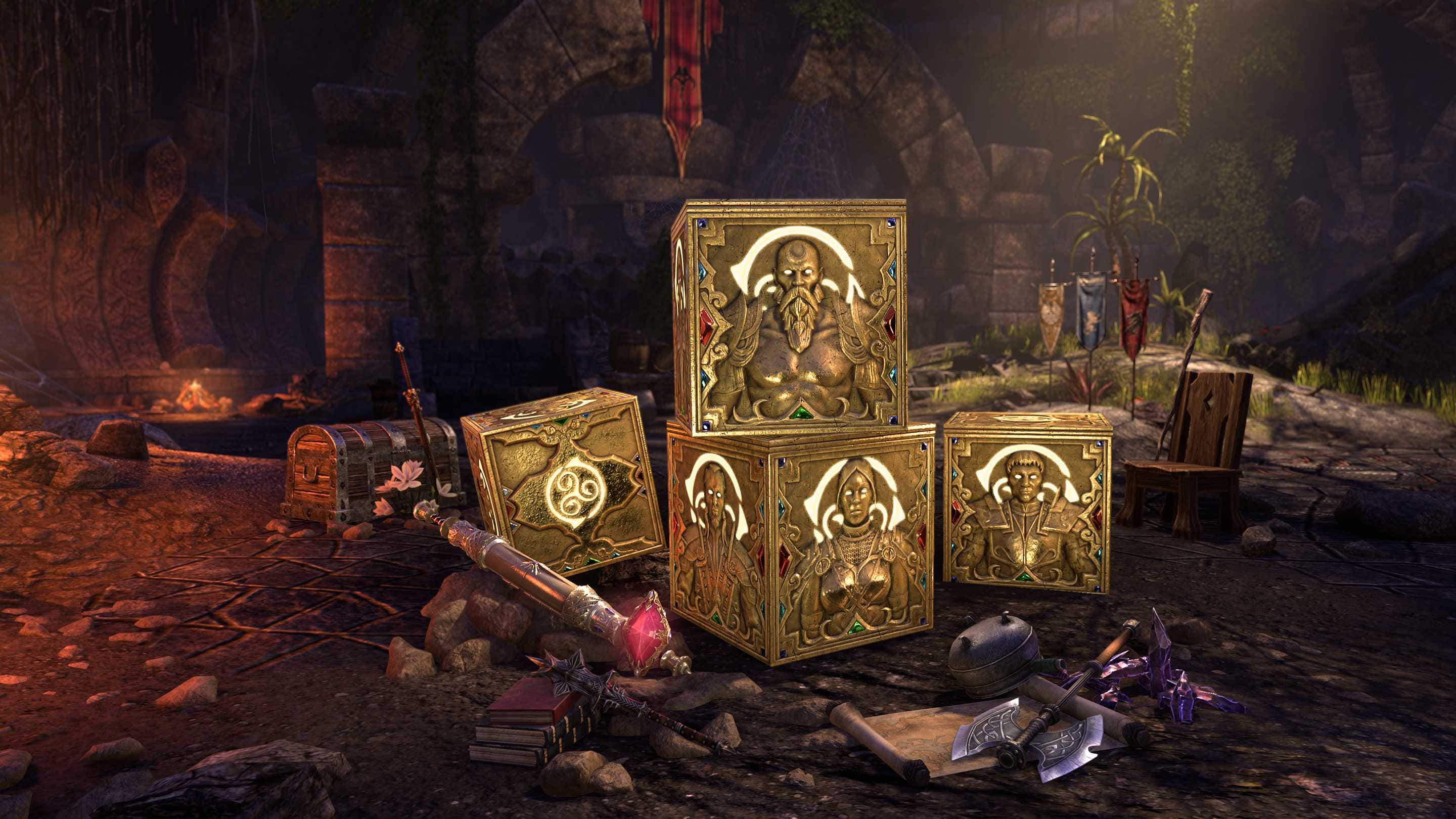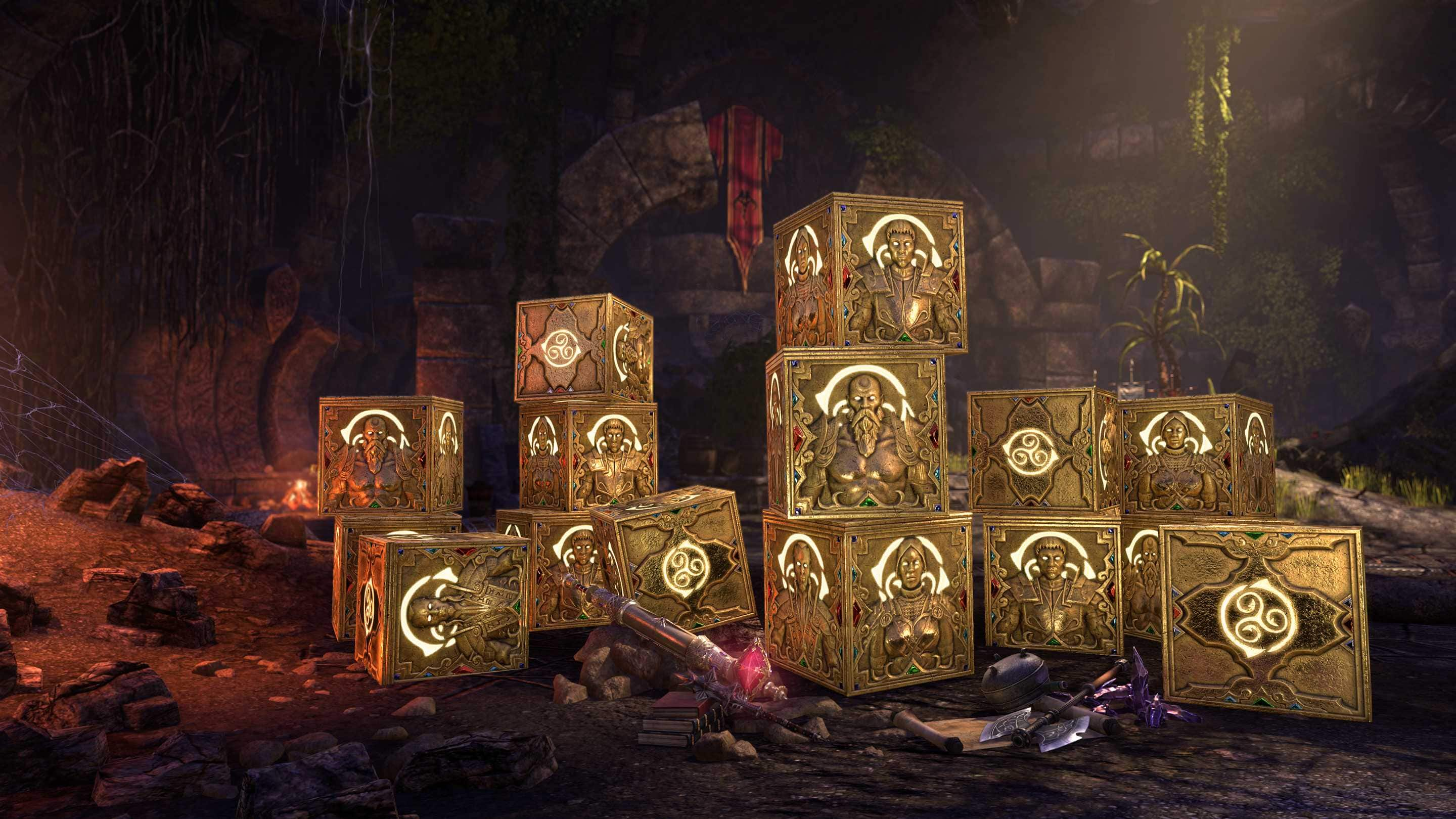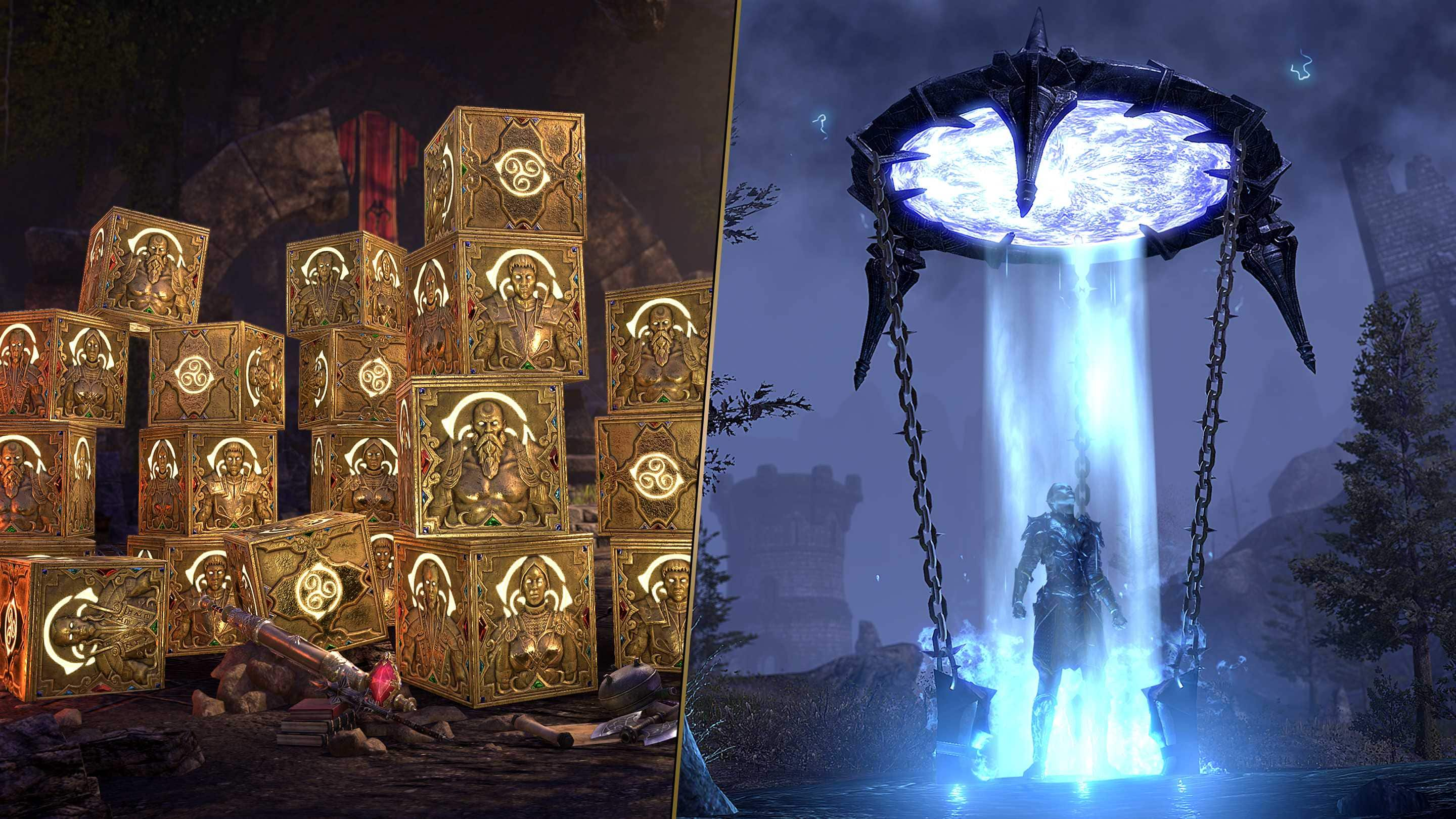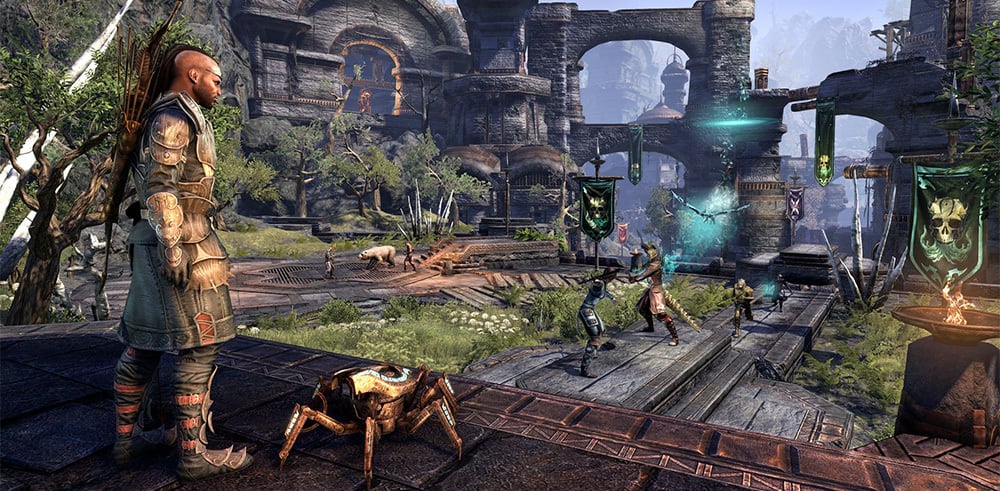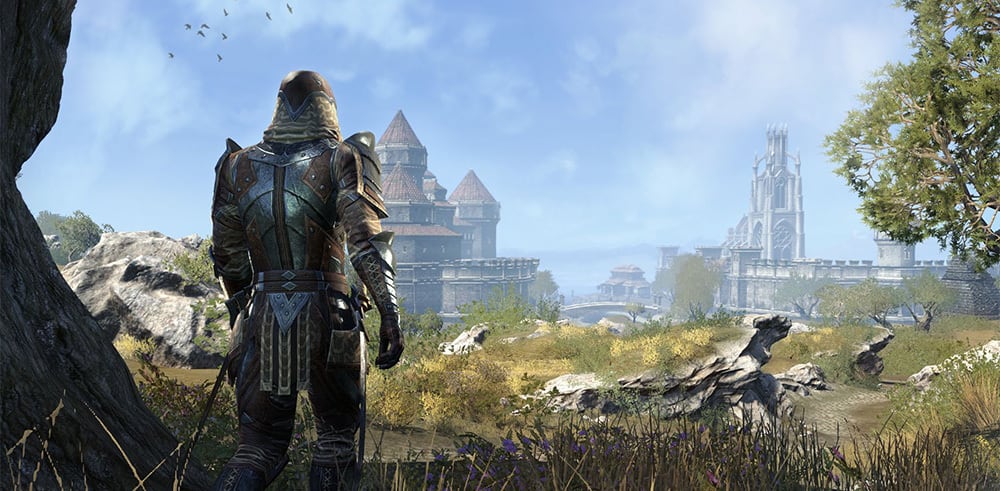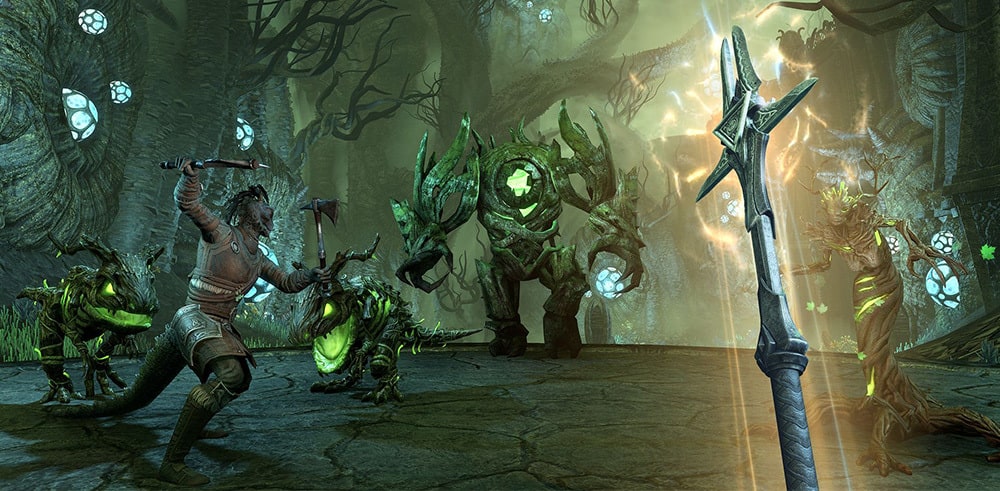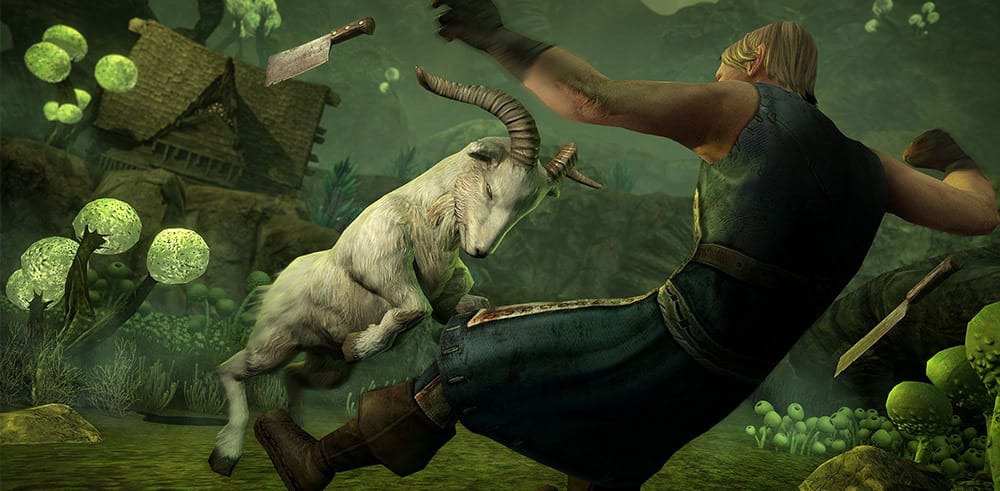Last Updated: 02/08/2024


In The Elder Scrolls Online, you can craft with the following Skill Lines: Clothing, Woodworking, Blacksmithing, Jewelry Crafting, Alchemy, Enchanting, and Provisioning. These Crafting skills can be accessed from the Skills menu and improve as you use them.
Harvesting Resources
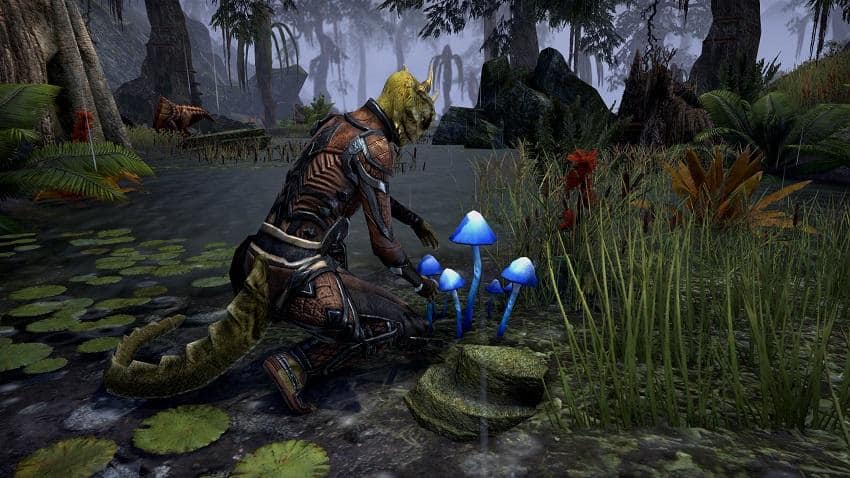
Many things you find can be used in crafting.
Resources for Clothing, Blacksmithing, Woodworking, Jewelry Crafting, Alchemy, and Enchanting can often be found throughout the wilderness, so keep an eye out for plants, minerals, mushrooms, pure water sources, and other items as you explore. If you approach a harvestable resource, you will be prompted to gather it. Harvesting resources does not require any special skills or equipment, although certain passive skills and Champion abilities can allow you to harvest higher-level resources or gather more efficiently.
You can also gain resources by deconstructing gear at Crafting Stations.
Finding Materials
In cities and other settlements, as well as in wilderness encampments and other stranger places, you'll find crafting materials in barrels, crates, and other containers. You will typically find materials for Provisioning, but can also find recipes in containers and water for brewing potions with Alchemy in flasks and waterskins, too.
Be careful when opening containers, as some are owned by NPCs who might not appreciate you taking their stuff! You can tell an owned container apart when the game prompts you with red interaction text.
If you can’t find the right materials on your own, you might be able to get them from other players! Try searching Guild Traders or checking the Guild Banks of any guilds you belong to. Other players you meet might have what you need and be willing to trade as well.
Crafting and Crafting Stations

You need a crafting station to make use of your skills.
With all the materials you find, you'll be able to create a wide variety of items. To craft, you'll need to interact with the appropriate Crafting Station for the skill (an anvil for blacksmithing, a cooking fire for provisioning, etc). Once there, you gain access to the relevant Skill Line and can use the materials you've gathered to begin crafting.
You can find Crafting Stations in most major cities. Check your map for the appropriate icons. You can do the following from Crafting Stations, although not all types of Crafting Stations allow for all of these options:
- Refine harvested resources
- Clean caught fish
- Create new items
- Deconstruct existing items for refined resources
- Improve the quality of existing items
- Research existing items with special traits to learn how to craft new items that share those qualities
- Craft Furnishing items
Equipment Crafters
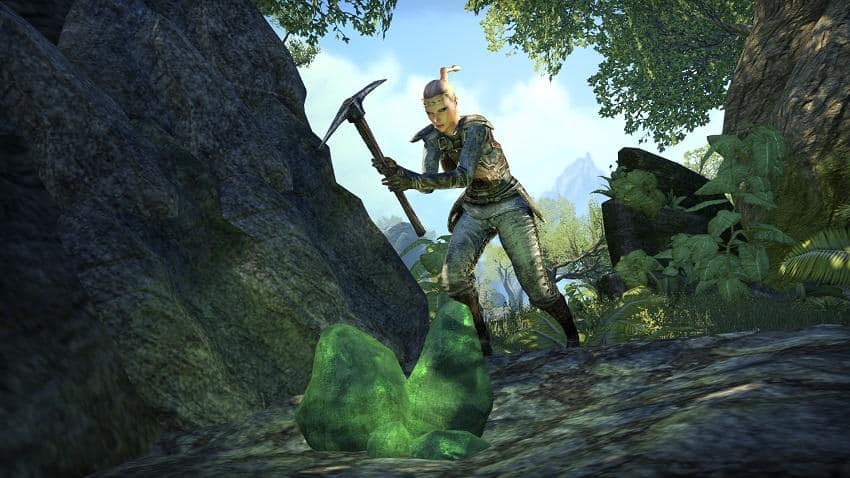
Quality materials make for quality goods.
There are four types of equipment crafting: Woodworking, Blacksmithing, Clothing, and Jewelry Crafting. Learning and leveling the Skill Line for a given craft does not lock you out of any of the others, so feel free to try them all! Equipment crafters can create armor or weapons from raw materials. The materials used determine a crafted item's level. You can use style components to craft items in different visual styles you have learned and trait components to add traits that you've researched to them.
To learn new traits, you must research an item with the trait you wish to learn. This destroys the item and takes an increasing amount of time based on how many traits you've already learned for that kind of item. Time taken can also be reduced by investing skill points in relevant passive skills for the craft in question. Research progresses even if your character is not online. You can access research at the appropriate crafting station (in the upper-right of the crafting menu). As you research more traits, you gain the ability to use special item set Crafting Stations as specific locations throughout the world (as well as in player homes) that can make special set gear that grants bonuses when multiple pieces of the same set are worn.
Equipment crafters can also deconstruct items to obtain refined materials, style components, trait components, and improvement materials. Tempers, tannins, platings, and resins are all improvement materials that can be used to improve the quality of an item. Already high-quality items require larger amounts of materials to improve further, as well as higher quality improvement materials. There are passive skills and Champion abilities you can invest in to make this process easier. Some decrease the amount of improvement materials needed for each upgrade, while others improve the results of refining raw materials and deconstructing items.
Alchemy
Alchemists use plants, mushrooms, and other ingredients to create potions and poisons. To create potions, gather these items in the world, and approach an Alchemy Station. From here, you can combine the reagents and solvents you've found to try and discover new potions.
Each reagent has four possible effects it can add to match with or negate those of other reagents. By combining ingredients that have the same trait without any negation from another ingredient, you'll create a potion with that effect and unlock knowledge of the traits you matched. You can sample ingredients by using them from your inventory to discover the first trait of an ingredient, but you'll need to experiment with combining ingredients to discover more.
You can also use the Alchemy system to create a wide array of dangerous poisons! Using oils (typically dropped by monsters in the world) instead of water as a base, these poisons can be equipped alongside wielded weapon sets and have a chance to be applied to your enemy when using heavy attacks, light attacks, or weapon abilities.
Provisioning
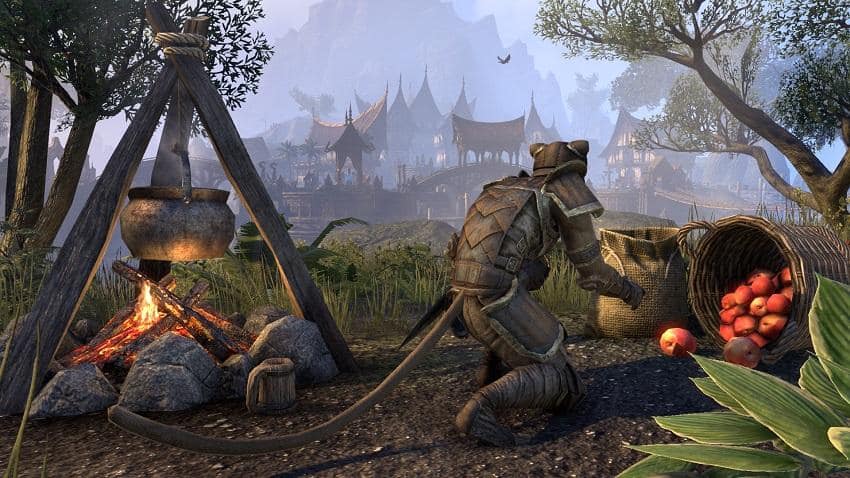
Now where did I put that ingredient?
Provisioners can create food and drink items that provide buffs. To create these items, you'll first need to find a recipe. Chef and Brewer vendors found in towns throughout Tamriel sell copies of recipes, as do many Guild Traders hawking the wares of other players. Once you have a recipe, all you need to do is find the ingredients it calls for and combine them at a cooking fire to create it.
Note that the buffs that food and drinks provide do not stack. When you consume a new item, its effects replace those of the earlier one. Certain rare and unusual items, such as Psijic Ambrosia or the Colovian War Torte, are exceptions and can be used with other food buffs.
Enchanting
Enchanters combine mysterious runes of Potency, Essence, and Aspect to create glyphs that add new properties to weapons, armor, and jewelry. You'll need at least one of each rune type to create a glyph at an Enchanting Station, and you can extract runes from glyphs you find there as well. Once you have your runes, using them at an enchanting station will translate them, allowing you to identify their exact effects for future use.
Note that an individual piece of equipment can only bear one enchantment, so applying a glyph to an item that already bears an enchantment will overwrite the existing effect permanently. Additionally, more powerful glyphs require similarly powerful equipment to bear their enchantment, so glyphs cannot be put on gear with lower level requirements than the glyph itself.
Runes can be found throughout the world as you explore.
Crafting Furnishings and Decorations
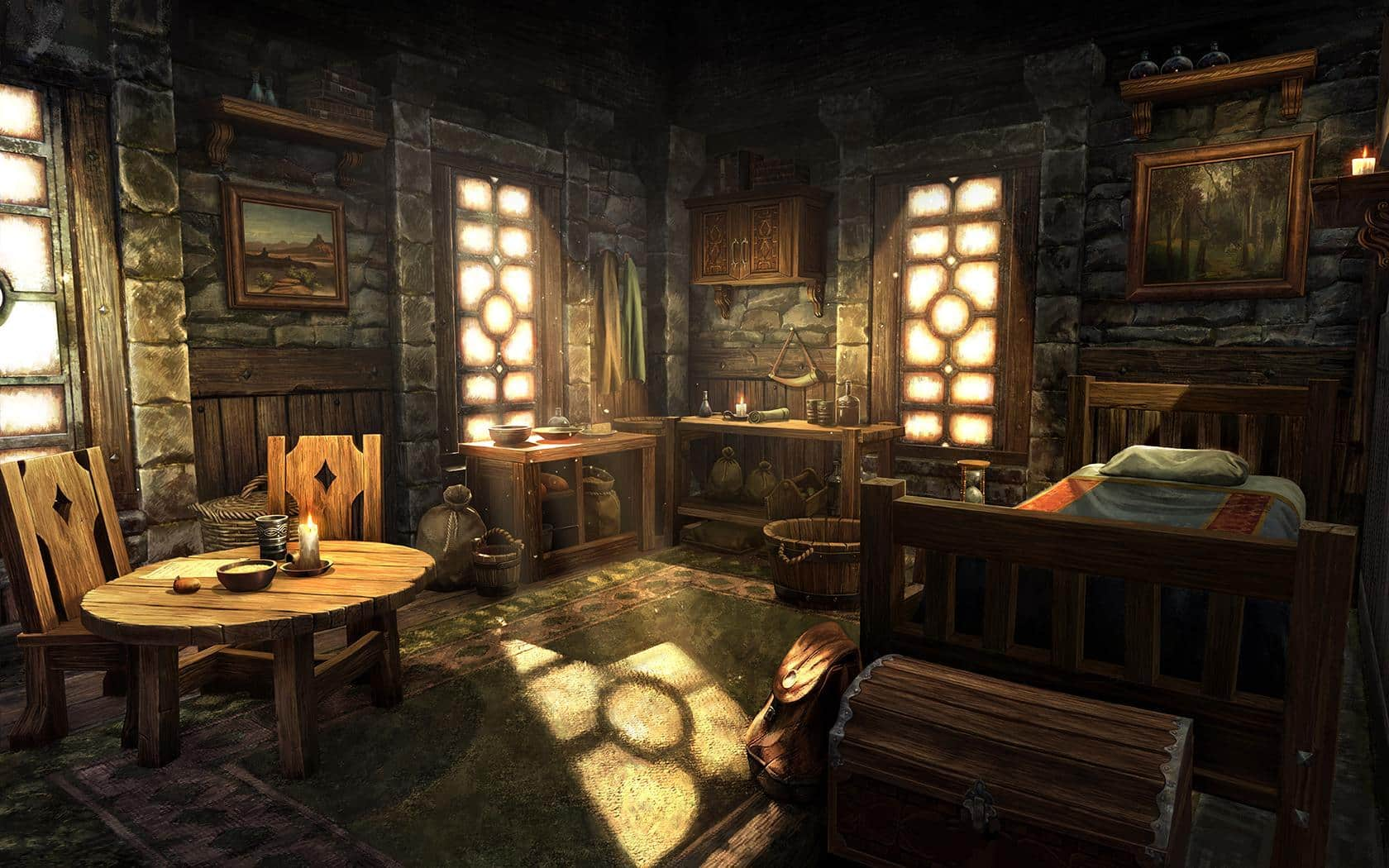
A Do-It-Yourself Project
Furnishing Crafting allows you to craft furniture to place in your home, or to sell to other players for a profit. Furnishing Crafting is an important part of each of the seven primary trade skills: Blacksmithing, Clothier, Woodworking, Jewelry Crafting, Enchanting, Alchemy, and Provisioning. In addition to the usual crafting materials associated with these skills, you can gather special furnishing materials from the sources that provide their materials for use in crafting furnishing.
To craft your own furnishings and decorations, find a furnishing crafting plan, use the plan to learn it, and use a relevant crafting station. Wooden furniture can be crafted at a Woodworking station, stone furniture at an Enchanting Station, and so on. The crafting station will have a tab in which learned furnishing plans are displayed for crafting. The crafting station used to craft a furnishing is based on the skills that plan requires. Furnishing plans require skill points invested into passives from crafting Skill Lines to create the furnishing items, and more complicated or rare furnishings may require passives from multiple different Skill Lines, making their creation a particular challenge. A furnishing plan that involves passives from multiple Skill Lines can be crafted at the station associated with the highest-ranked passive required.
ADVANCEMENT IN CRAFTING
Once you have studied the fundamentals of one or more of the crafting Skill Lines, you are on the road to mastery. As your rank in each crafting discipline advances, continue to spend Skill Points on passive skills in the Crafting Skill Lines for greater effectiveness and efficiency, including ranking up the first passive in each Skill Line to find higher level resources when gathering. Gathered resources scale off both your character level and your ranks in the associated passive skill. Also be sure to seek out sources of further crafting Inspiration—the method of ranking up your Skill Lines—such as deconstructing gear, making new equipment or furnishings, and performing daily crafting Writ quests. Don’t forget to learn alchemical traits, and translate runes for your full crafting repertoire as well.
Starting at level 6, Crafting Writs for the six base-game crafting Skill Lines can be accessed by speaking to the NPCs Danel Telleno and Millenth. These NPCs are found in many towns and cities across Tamriel, from Vulkhel Guard, Davon’s Watch, and Daggerfall to Vivec City, Alinor, and Necrom. They are commonly located at the Mages and Fighters Guilds respectively or near the crafting boards where the Writ quests are offered. Aspiring Jewelry Crafters should instead seek out Felarian in the city of Alinor in Summerset. Each of these NPCs has quests to certify you for one or more crafts. Completion of these quests unlocks Writs, special quests for each craft in which you have been certified. These quests can be performed daily and award significant Inspiration as well as gold, crafting materials, and more. Similarly to gathered resources, Writs scale off your investment in the first passive skill in a crafting Skill Line, with greater rewards and more Inspiration provided for each tier of Writ.
Those who want to make the most of their crafting experience should consider reaching out to the larger ESO community and joining a guild where they can find like-minded individuals for guidance, and perhaps others in need of crafted gear and consumables! There’s more to crafting than we could possibly cover in this guide, including master writs, transmuting, and more, so check out other guides and the knowledge of your fellow players for the full story.
Don't forget that if you ever have additional gameplay questions, you should navigate to the in-game Help menu for more information on the game's features and mechanics. In addition, you can visit the Players Helping Players section in the official ESO forums to talk to the ESO community or check out any of the player-made guides right here.


